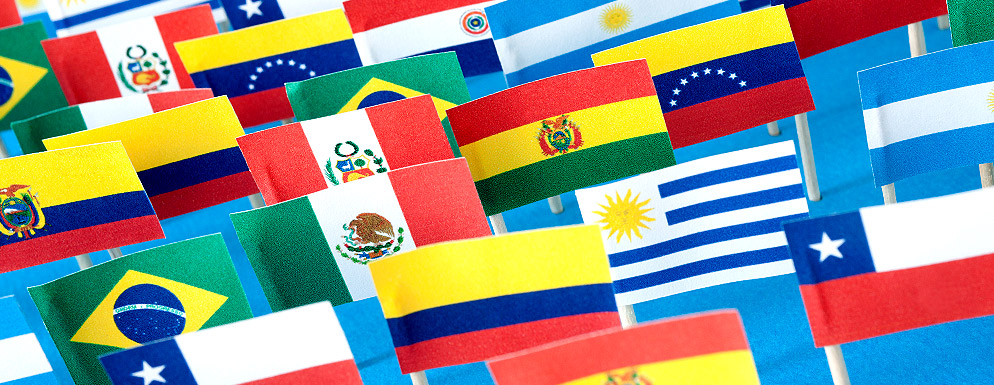How do you say dèjà vu in Spanish?

Actions will speak louder than the words for Latin America’s populists in 2018.
Nearly two out of three Latin Americans will choose a new leader over the next 12 months. Chile and Honduras have kicked off the year-long cycle. Brazil, Colombia, Costa Rica, Mexico, Paraguay and possibly Venezuela will follow next year.
Observers are worried that populism will come home to roost in Latin America. It almost certainly will, at least in some form. It never really went away. A host of countries elected populist leaders in the 2000s, with a general movement towards the left, in the so-called ‘Pink Tide’.
The fragility of prosperity
Even in an era of high commodity prices and seemingly limitless demand for natural resources from China, some of these populist models failed quickly, like the Kirchners in Argentina, and, as we see today, the legacy of Hugo Chavez in Venezuela. Other economic models, like the Brazilian one, had some success and were able to dramatically improve standards of living with the middle class growing by 50% between 2003 and 2009 alone.
But even the Brazilian model looked fragile as commodity prices dropped, exposing the reality that growth relied on an unsustainable expansion in credit. Suddenly even the liberal politics that high commodity prices had engendered in places like Mexico and Chile was under threat. This was really the point when the so-called Pink Tide ebbed.
Trouble at the top
There are strong checks and balances in place in many countries, even if they attempt to circumvent them. This is happening in Ecuador where a perceived left-wing leader (aptly) called Lenin is utilising referenda to try to bypass legislative deadlock.
It is a high risk strategy though, as Colombia shows. Leaders there were embarrassed recently when voters initially rejected a peace deal with the Revolutionary Armed Forces of Colombia (FARC) left-wing rebel group in a referendum. Peace is always welcome but it shows the power of the people to hold the government to account. The use of referendums can provide an important restraint on attempts to concentrate power around the executive branch.
It is also worth remembering that many of these populists are unlikely to win outright, undermining their ability to make dramatic policy changes. This applies to all politicians, populist or otherwise. The reformist, but certainly not populist, Mauricio Macri in Argentina has had to tread carefully with policy proposals because he lacks a legislative majority. The recent results in Honduras and Chile illustrating this.
Macri, for his part, has pushed to re-establish some of Argentina’s checks and balances after they were undermined by his predecessors. An example would be the central bank, which has an independent mandate, and he has restored the authority of the much derided national statistics agency. These measures, much like those in Mexico, to strengthen the integrity of institutions have been welcomed and rewarded by investors.
Democracy delaying action
It is also worth remembering that many of these populists are unlikely to win outright, undermining their ability to make dramatic policy changes. This applies to all politicians, populist or otherwise. The reformist, but certainly not populist, Mario Macri in Argentina has had to tread carefully with policy proposals because he lacks a legislative majority. Whoever eventually wins in Chile and Honduras faces a similar fate.
Macri, for his part, has pushed to re-establish some of Argentina’s checks and balances after they were undermined by his predecessors. An example would be the central bank, which has an independent mandate, and he has restored the authority of the much derided national statistics agency. These measures, much like those in Mexico, to strengthen the integrity of institutions have been welcomed and rewarded by investors.
Change – but at what cost?
In many countries, a decade of strong growth has allowed institutions to flourish because they have avoided holding back the ambitions of the executive branch.
There is a risk that some of these institutions are heading for conflict as populists change the direction of policy. Brazil’s “Lava Jato” corruption scandal shows how powerful elites and strong institutions can rub up against each other. It has dragged the judiciary into the light as much as the wrongdoing of elites.
In Mexico, far reaching and effective reforms by President Pena Nieto have failed to address normal peoples’ concerns about crime, corruption and living standards. Reductions in gasoline subsidies, welcomed by investors, resulted in Pena Nieto being more unpopular than Trump at the start of this year.
So there is a real challenge for Latin America this year. Social and economic progress is hard and faltering. But strong institutions are a boon for progress. It is not the party or political leaning that investors should be worried about. It is whether these ideologies seek to improve institutions or undermine them.

